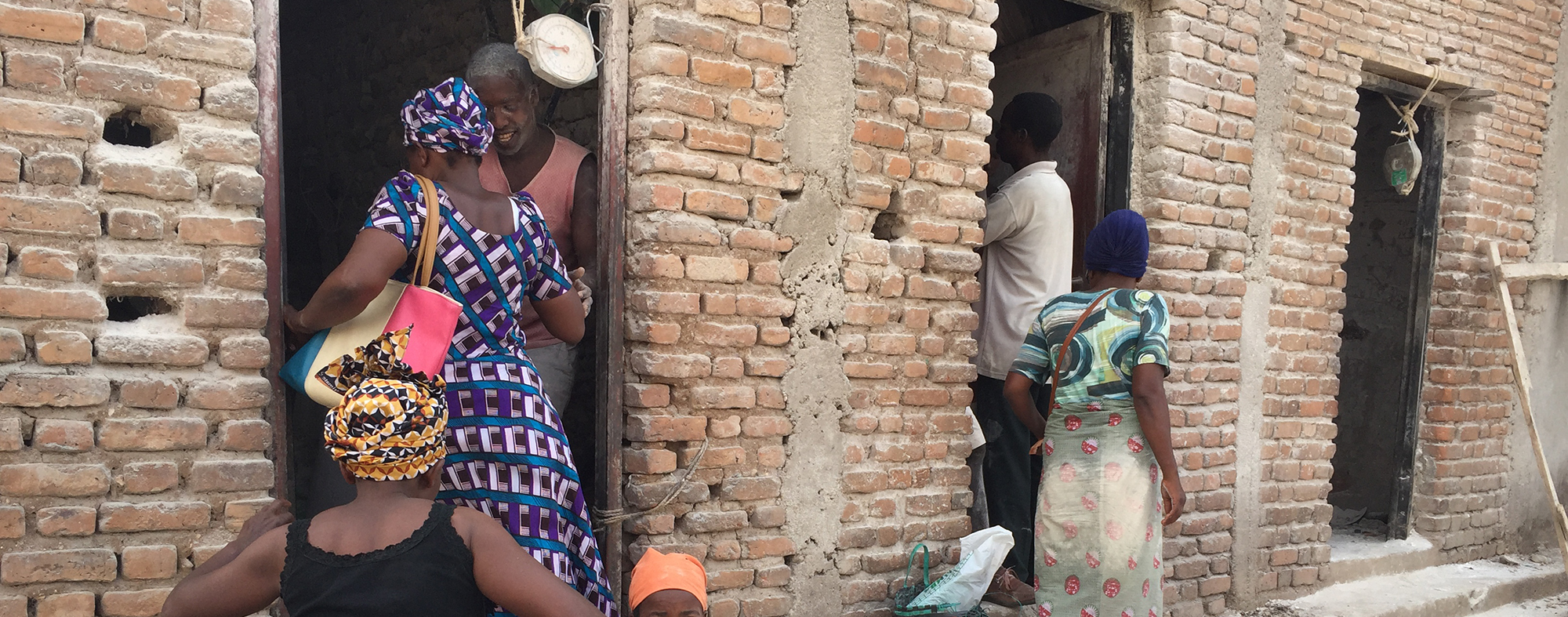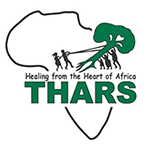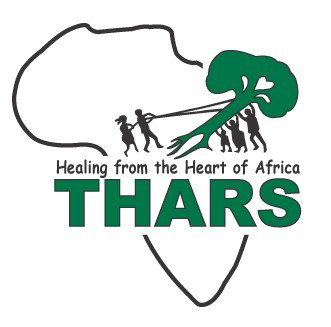

Pathways to Peace
Psychosocial accompaniment for the transitional justice processes
THARS builds a work that focuses on strengthening community-based initiatives that can counteract violence. It reinforces mechanisms that offer safe places where past hurts and political ambitions are verbalized in a healing and constructive way as well as applying restorative justice practices to reduce potential violence.
Engagement in peacebuilding with the Alternatives to Violence Project
AVP (Alternatives to Violence Programs) are intensive workshops and training in which 20 participants come together for 3 days. THARS is offering AVP workshops as part of its programs targeting different constituencies including community leaders, victims, youth, university students, political party leaders and ex-prisoners. Since 2013 AVP workshops have been run by THARS to support healing, reconciliation and prevention of violence as part of a transitional justice program.
Self-Help Group initiatives to the vulnerable and poor communities
In Self Help Groups, fifteen to twenty women from the same background meet once a week to talk, support each other and collectively save money. SHGs help the marginalized women escape loneliness and social isolation. In the group they experience solidarity and empowerment and develop self-confidence. SHG members also support each other in case of illness. They help with chores or provide funds in case of financial emergency. The money saved in by SHGs is loaned to group members to start income generating activities.
Staff support for SHGs is provided by Community Facilitators who attend group meetings and facilitate workshops on group processes, leadership skills, women’s rights, healing of memories and political organizing. Staff support is gradually reduced as the groups learn to work independently.
By meeting regularly and participating in leading SHG meetings and in group decision making, member’s self-esteem and confidence are increased. Members also learn how to do viable small business which they start using their small group savings.
SHGs empower members politically by electing representatives to a Cluster Level Organizations that address broader community needs such as improvement of water supply, vaccination campaigns and education for their children.
Food security through the agriculture with respect to the environment
This program was initiated in the rural areas where the community is in dire need of food and where the traditional farming is not achieving the expected results. Its main objective is to build the capacity of poor communities and strengthen the economic improvements of rural farming in order to achieve significant development in food security and livelihood.
Economic empowerment through support groups
The objective of this initiative is to facilitate the continuation of healing processes and empower vulnerable women to be self-sufficient and self-reliant. Almost all of these persons, mostly women, including the facilitators who are in the program are former victims of gender based violence including cases of rape.
Training
THARS uses specially-designed, unique curricula that are both theoretical and practical. Over half the workshop is spent in practicum; giving learners the opportunity to test their skills and to role play so they can see for themselves how the methods work. Thousands of people have attended THARS workshops on such topics as: What is trauma?, Active Listening Skills, Understanding the Cycle of Violence, Working with Traumatized Children, Play Therapy, Traditional Ways of Handling Grief and Loss, Strategies of Trauma Resiliency, Facilitation of workshops on Alternatives to Violence, and Healing of Memories.
Assistance to the traumatized with Healing of Memories workshops
Healing of Memories workshop has been shown to be especially effective in increasing trust amongst parties through personal contact in a safe, supportive setting. Healing of Memories lays the groundwork for reconciliation by opening up communication among community members and beginning to identify and address issues of mutual concern in a positive manner.
THARS first delivered Healing of Memories training in August 2005, after receiving training from the program’s originator, Father Michael Lapsley, and his colleague, Mongezi Mngesse, all from South Africa. THARS strives to bring Hutus and Tutsis together in safe workshops for story-telling, reconciliation and forgiveness.
After receiving training in active listening and non-directive, non-judgmental counseling skills, the THARS facilitator help participants feel that they are in a safe place with a caring listener and therefore can tell their painful stories. In that process, participants also go through special exercise such as drawing, molding with clay their personal stories which helps to develop and reinforce a much deeper context for healing, reconciliation and forgiveness developed.
Youth and young adult psychosocial and economic empowerment
THARS provides spaces for dialogue for youth from diverse social and political backgrounds. They volunteer to implement community income regenerating activities along with projects of public interests such as making roads and bridges which would otherwise be impassable. Workshops on social cohesion are regularly organized for different for youth and they also meet on their own to tackle social issues, apart from the evaluation on how their economic resiliency is shaping.
Healing for victims of violence
THARS offers renowned counselling services underpinned by a Christian world-view, with a principle of do-no-harm. Seeing that healing is a process, THARS also offers a holistic accompaniment to the victims on a regular basis through its Community Therapeutic Centres established in the neediest locations throughout the country.
THARS uses the Community Healing Theatres for healing. The culture of the people of Burundi is frequently noted for its strength in playing, singing, dancing and story-telling. Drawing on these abilities, THARS has developed Community Healing Theatres, public events held in villages where community members play and tell stories of healing.
Gathering in a public space, with community leaders usually seated on a platform, community members tell their stories of trauma and healing using plays, songs, dances, drumming and the spoken word. In a society that normally shuns discussion of violence and its aftermath, Community Healing Theatres have provided supportive venue where both women and men tell their stories of trauma, violence and abuse.
The events have been popular and well attended, with strong participation by community leaders and political figures. These gatherings have helped bring reconciliation for past violence or ongoing grievances that otherwise may otherwise fester in the minds of community members. Community Healing Theatres empower women by creating a public venue for telling their stories and validation of these stories by community members’ participation and by statements of support by community leaders.
Cultivating Learning with School Gardens in elementary schools
This program is the version of the The Burundi 4-H project commonly known as the UUAA (Umutwe, Umutima, Amaboko, Amagara) Nkoranzi project that started in June 2015. The project is run by THARS in partnership with the Washington State University. The project works in six pilot schools in the Communes of Gitega and Bugendana, both in the province of Gitega. Since project activities started on the ground in the schools, remarkable progress is seen and both pupils and teachers are showing enthusiasm on the project.
Awareness raising and sensitization
THARS makes people aware of the consequences of trauma and appropriate responses. THARS organizes public conferences on healing so that people know they need not suffer now that services are available. THARS also encourages people to break the silence about trauma, especially in cases of rape. THARS distributes pamphlets, calendars and newsmagazines written in Kirundi, the native language of Burundi. These publications tell what trauma is, how it affects people, and healing processes that are effective as well as informing the public of the THARS services.
Consultancy
THARS is invited by other organizations and individuals to provide its expertise in research and consultations. Its experienced staff have the local and the international capability to engage in conference presentations, workshop facilitations and practical work guidance in fields related to mental health, community social transformation and economic resilience. THARS staff often feature on various mass media and social media both locally and internationally.


